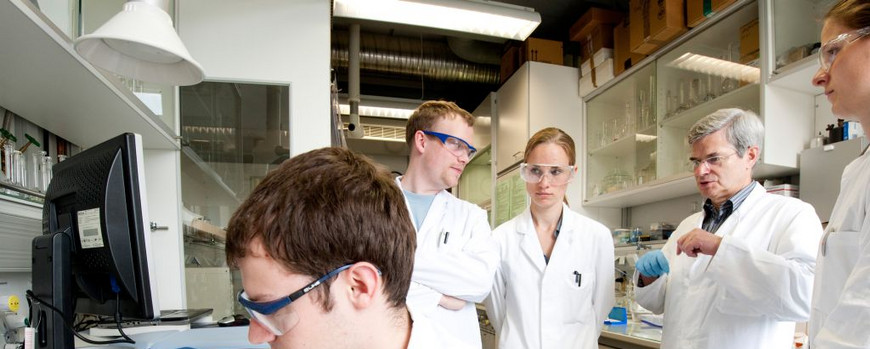Doctoral Training in different sectors
Training by research
CropStrengthen young researchers will perform their individual research projects in the academic and the industrial sectors. The ESR will be supervised by PIs and experienced researchers from different partner institutions.
The projects include secondments and research stays for several months at the partner institutions and companies of the consortium.
Lectures and seminars
A series of lectures for all ESRs is designed and will be delivered at UP. Topics are in plant genetics, development, and evolution.
Courses, workshops, and conferences
A number of courses are planned to be delivered at UP, BA, and EZ. These courses will comprise lectures (by consortium specialists and invited speakers), practical demonstrations, and interactive computer assisted analyses, covering aspects of transcriptomics, proteomics, metabolomics, as well as phenotype analyses and project planning, implementation and coordination.
PhD students are going to attend international conferences, especially in the final year of their study.
Hands-on training on genomics and metabolomics instruments
More specifically, the ESRs will be trained with the in-house instruments for genome and metabolome analyses Illumina sequencer, quantitative multi-parallel real-time PCR machine, gas- and liquid chromatography coupled with sensitive mass spectrometers.
Bioinformatics and Biostatistics
Such skills are needed to prepare ESRs for tasks such as comparative genomics, analysis of large transcriptome and metabolome datasets, integration of complex data into systems biology models.
Topics will included:
- Introduction to Bioinformatics and Sequence analysis
- Linux for Bioinformatics
- Comparative & evolutionary genomics
- Using R and Bioconductor
- NGS Expression analysis
- Methods in designing scientifically robust commercial field trials
- Methods of statistical analysis in commercial field trials, using GraphPad PRISM
Abiotic stress phenotyping and analysis
The training will bridge fundamental science with applied, market-oriented science. The training includes hands-on training on methods for plant phenotype analysis and evaluation of crop parameters such as yield, seed and pollen viability, and stress tolerance, using classical as well as advanced technologies (such as the LemnaTech machine for high-throughput phenotype analysis or the Amphasys’ patented “lab-on-achip” technology, that enables efficient and reproducible determination of pollen viability).
Personal Career Development Plan (PCDP)
A PCDP will be established for each ESR to facilitate the implementation of the training activities and reach the ultimate training goals. The PCDP will be revisited after 9-12 months to allow adjustments if needed (e.g. as a result of the training during the first months/year). The plan will consider transferable skills training availabel at partner or external institutions.
Further Information for PhD Studentsat UP
- ... a central academic institution of the UP that strives to ensure optimal conditions during the PhD phase.
- ... the central consultation and service point for international scholars in Potsdam.
- ... at the Faculty of Sciences.
- ... the formalities.

